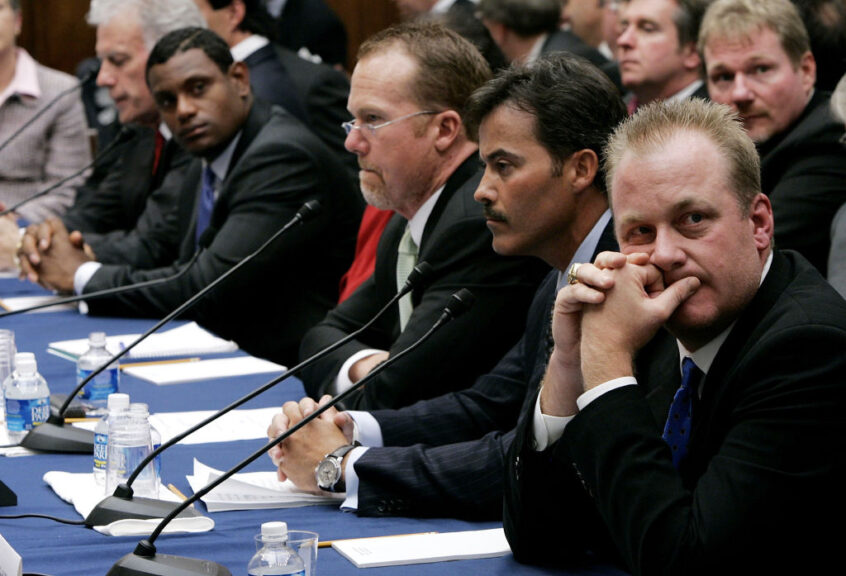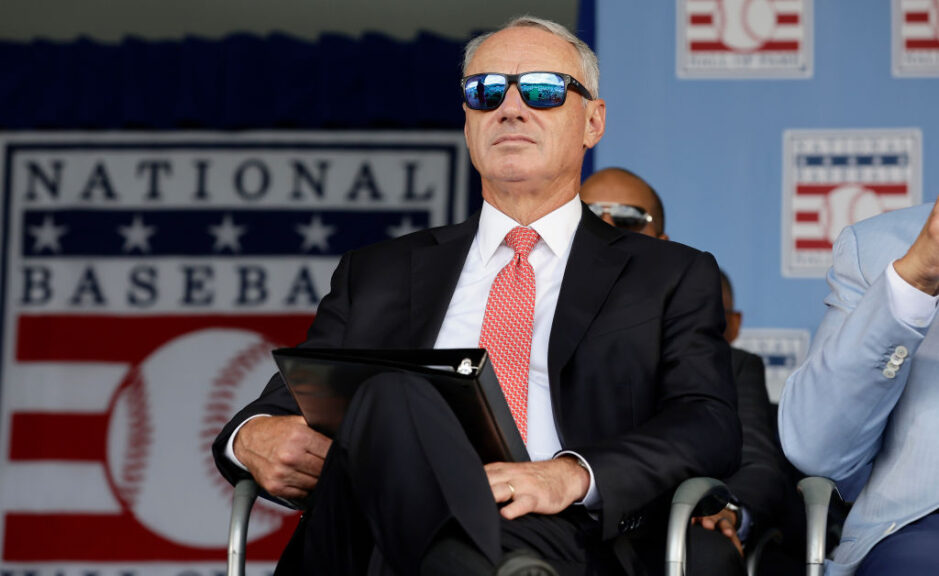The intricate tapestry of baseball’s history is marked by towering achievements, unforgettable moments, and, inevitably, its share of controversies. One of the most enduring debates centers on the Hall of Fame eligibility of players associated with or suspected of using performance-enhancing drugs (PEDs).
The recent Hall of Fame vote, where former New York Yankee and Met Gary Sheffield, an exceptional talent, was not elected in his last year of eligibility due to mere suspicion of intentional steroid use (Sheffield admits to unknowingly using a topical steroidal cream in 2002 he believed to be cortisone), brings this issue into immediate focus.
This case, among a select few others, calls for a deeper examination of the MLB’s approach to steroid use, particularly before the implementation of comprehensive testing protocols in the period after the initial survey urine testing for banned steroids in 2003 and 2004 was completed.
Before 2003, Major League Baseball operated without a robust steroid testing framework, creating an environment where PED use went largely unregulated. This era, retrospectively branded as the “Steroid Era,” was characterized by record-breaking performances and a surge in the sport’s popularity.
Players like Sheffield, who competed partially during this period, now find their legacies overshadowed by punitive suspicion, despite the absence of concrete evidence against them. The question arises: Is it fair to exclude players based on suspicion alone especially when they played in an era with different norms and regulations?
The shift in MLB’s stance on steroids, notably after governmental scrutiny in the early 2000s, led to stricter policies and testing procedures. While necessary for the sport’s integrity, this transition cast a retrospective pall over the achievements of many players, complicating their Hall of Fame considerations. Yet, the post-2003-2004 landscape, where failed drug tests provide clear evidence of PED use, presents a different set of challenges and considerations.

Win McNamee/Getty Images
The multitude of players whose Hall-of-Fame-worthy careers are marred by positive tests, embody this dilemma. Their cases prompt us to consider steroid use beyond the binary of right and wrong, potentially delving into the realms of addiction, physical dependency, and mental health considerations for players that may have failed tests when they were already financially secure and had no real reason to risk a loss of pay or their long-term legacies.
The discourse around PEDs in sports rarely acknowledges the potential for physical and mental dependency, akin to more recognized forms of substance abuse. Steroids, like other drugs, can lead to a complex web of dependencies that challenge the user’s ability to simply abstain. This aspect of steroid use calls for a more nuanced approach, recognizing the need for rehabilitation and mental health support for those seeking to overcome their reliance on PEDs.
The tragic cases of former WWE wrestler Chris Benoit, who was a confirmed steroid user and whose homicidal actions were speculated by some to be influenced by “roid rage,” and former Major Leaguer Jeremy Giambi, also a confirmed steroid user, whose suicide raises questions about the long-term psychological impacts of steroid use, underscore the urgent need for empathy and support systems for athletes grappling with these dependencies, perhaps even years after their active playing careers have ended.
These examples highlight the darker consequences of PED use that extend beyond the playing field, into the very lives and well-being of the athletes. They should compel us to reconsider how we view steroid use in the context of sports and even the MLB Hall of Fame. Should we not extend the same understanding and support to athletes dealing with PED dependencies as we do to individuals battling other forms of addiction?
The punitive approach, which focuses solely on penalties and exclusion, fails to address what may be some serious underlying health and psychological issues associated with steroid use and does little to aid in the rehabilitation of affected athletes.
The Hall of Fame, as a custodian of baseball’s rich and varied history, has an opportunity to lead by example in this regard. By adopting a more empathetic stance towards players from the Steroid Era, and those who have struggled with PED dependencies, it can foster a more inclusive and compassionate narrative.
This doesn’t mean overlooking the use of PEDs or diminishing the importance of fair play, but rather recognizing the complexities of the era and the human struggles behind the headlines.
Moreover, the Steroid Era’s contribution to baseball’s success and appeal during the critical period after baseball restarted following the owner-initiated lockout in 1994 that halted an exciting season where players thought to be “clean” like the Chicago White Sox’s Frank Thomas and the Seattle Mariners’ Ken Griffey Jr. looked to be on the way to potentially making history as they challenged Roger Maris’ single season Home Run record, should not be understated.
Fan interest in the sport seriously waned starting in 1995 due to the previous season’s preemption, and the excitement and intrigue generated by the era’s record-breaking performances, particularly in the 1998 season, played a significant role in rejuvenating the sport, drawing in fans, and generating significant revenue. Acknowledging this era and its players in the Hall of Fame does not condone steroid use but recognizes its indelible impact on the sport’s history
In rethinking steroid bias for Hall of Fame consideration, the MLB and the broader baseball community have a chance to address one of the sport’s most contentious issues with a balanced mix of integrity, empathy, and historical perspective.

Jim McIsaac/Getty Images
This approach would not only honor the full spectrum of baseball’s legacy but also promote a more understanding and supportive environment for athletes that may be quietly facing the challenges associated with PED dependency.
The debate over steroids and the Hall of Fame is more than a question of statistics and accolades; it’s a matter of understanding the human element behind the players’ achievements and struggles. By reevaluating stances on these issues, we may potentially pave the way for a more empathetic and nuanced appreciation of the sport’s history and its heroes.
* * *
Julio Rivera is a business strategist, political commentator and columnist, and a lifelong New York sports fan. His writing has been published by many of the largest and most respected news organizations in the world.
The views expressed in this piece are those of the author and do not necessarily represent those of The Daily Wire.

Continue reading this exclusive article and join the conversation, plus watch free videos on DW+
Already a member?

.png)
.png)

